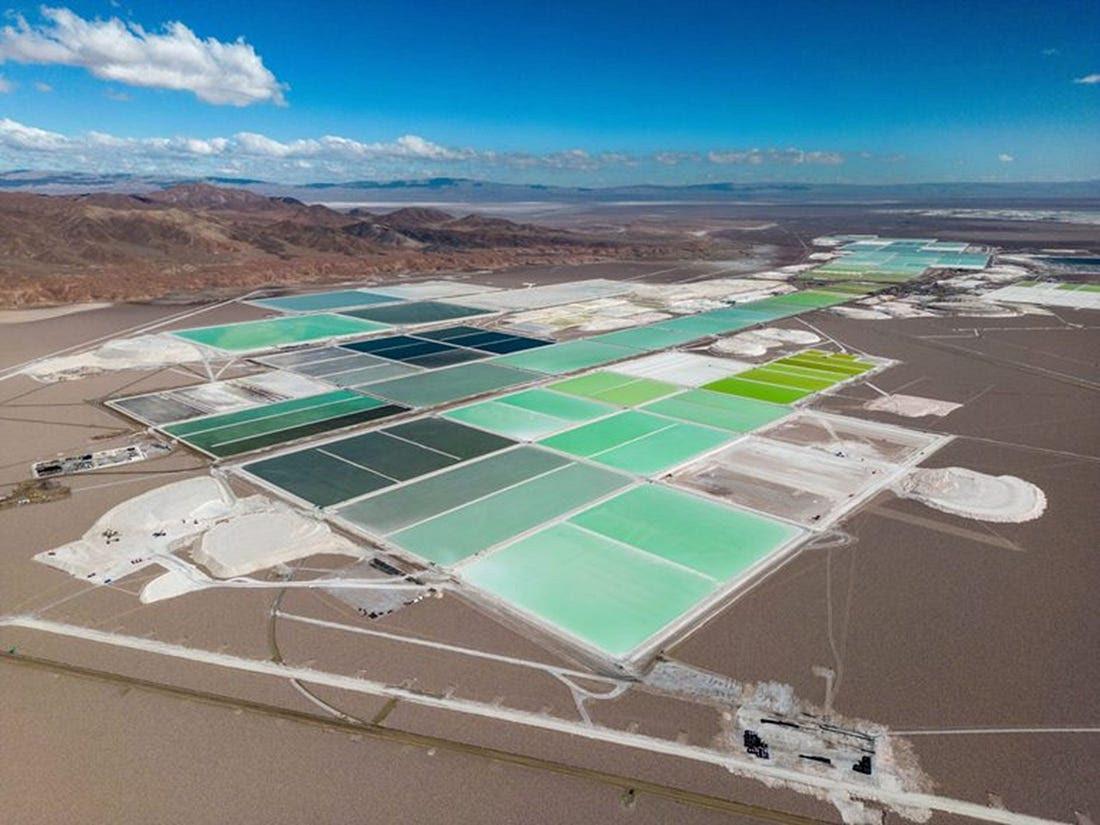
Abu Dhabi's Critical Metals Deal Reshapes Gulf Security Strategy
Lithium fields in the Atacama desert in Chile
The world economy is accelerating toward what the International Energy Agency calls“the electrification of everything”, while the AI revolution that the GCC has embraced compounds future demand for these strategic materials.
See also An emerging market fintech that is my fave potential double bagger!Rare-earth magnet projects not under Chinese control remain a lodestar for GCC and European sovereign wealth fund capital.
It is no coincidence that even the UK Treasury has given the thumbs up to the privately owned Corniche Lithium, which mines hard-rock and lithium-brine deposits discovered by British geologists as far back as the mid-Victorian era in 1864.
Critical minerals will reshape the global industrial ecosystem, spanning industries as varied as automotive, computing, mining, chip fabrication, electronics and aviation.
For the GCC, the pandemic served as a real-world stress test when some Gulf states were forced to import ventilators from the Big Three automakers (Ford Motor Company, General Motors and Stellantis), the only manufacturers with the advanced production capabilities required for rapid, high-volume emergency orders.
It is no exaggeration to conclude that the economic destiny of the West depends on its success in winning the strategic metals arms race with Beijing at a time when geopolitical tensions over Taiwan, Hong Kong, Tibet and the South China Sea are at their most volatile.
This is why the US government has financed some of the world's leading reprocessing, refining and recycling platforms. America can no longer afford the luxury of ceding ground in a competition it barely recognised for the past two decades, when Washington's policy agenda was consumed by post-9/11 military engagements in Afghanistan and Iraq.
The US has thus accelerated its pivot to the Gulf to galvanise sovereign wealth funds and private capital to meet this multilateral challenge to international security and industrial competitiveness.
National security for the GCC and the West is defined by technology and access to critical metals as the world electrifies and decarbonises in the high noon of the Digital Age.
See also Making big money in real estate with minimal riskEconomic statecraft has been central to national development and interstate relations ever since the petrodollar bonanza of the early 1970s made realpolitik a recurrent diplomatic theme in the chancelleries of the Western world.
The GCC has made clear that its strategic interests align with those of the West, even as China emerges as the region's largest buyer of oil and gas.
From geologists to project financiers, government officials to economists, diplomats to media executives, the Gulf's policy elite increasingly incorporate access to strategic metals into their frameworks for economic competitiveness, technology leadership and security planning.
This makes critical metals the new geopolitical currency of power in the GCC, gradually supplanting oil's historical role as the singular measure of national strategic depth and international influence in the region.
Notice an issue? Arabian Post strives to deliver the most accurate and reliable information to its readers. If you believe you have identified an error or inconsistency in this article, please don't hesitate to contact our editorial team at editor[at]thearabianpost[dot]com. We are committed to promptly addressing any concerns and ensuring the highest level of journalistic integrity.
Legal Disclaimer:
MENAFN provides the
information “as is” without warranty of any kind. We do not accept
any responsibility or liability for the accuracy, content, images,
videos, licenses, completeness, legality, or reliability of the information
contained in this article. If you have any complaints or copyright
issues related to this article, kindly contact the provider above.


















Comments
No comment